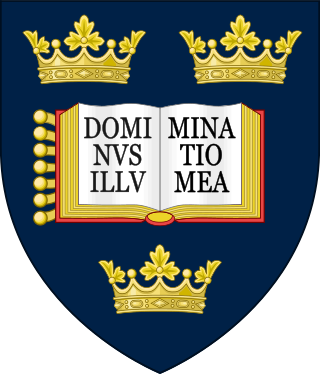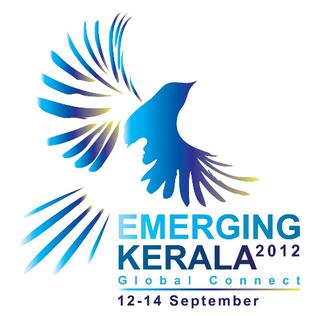
Research and development is the set of innovative activities undertaken by corporations or governments in developing new services or products, and improving existing ones. Research and development constitutes the first stage of development of a potential new service or the production process.

A science park is defined as being a property-based development that accommodates and fosters the growth of tenant firms and that are affiliated with a university based on proximity, ownership, and/or governance. This is so that knowledge can be shared, innovation promoted, technology transferred, and research outcomes progressed to viable commercial products. Science parks are also often perceived as contributing to national economic development, stimulating the formation of new high-technology firms, attracting foreign investment and promoting exports.
Innovation, Science and Economic Development Canada is a department of the Government of Canada. ISED is responsible for a number of the federal government's functions in regulating industry and commerce, promoting science and innovation, and supporting economic development. The department was known as Industry Canada (IC) prior to 2015.
A business incubator is an organization that helps startup companies and individual entrepreneurs to develop their businesses by providing a fullscale range of services starting with management training and office space and ending with venture capital financing. The National Business Incubation Association (NBIA) defines business incubators as a catalyst tool for either regional or national economic development. NBIA categorizes its members' incubators by the following five incubator types: academic institutions; non-profit development corporations; for-profit property development ventures; venture capital firms, and a combination of the above.
The Southern Education and Research Alliance (SERA), founded in 1999, is a strategic alliance formed between the University of Pretoria and the Council for Scientific and Industrial Research. The alliance collaborates locally and internationally with universities, NGO's, companies and multinational bodies in various research areas. Sera has a 50% shareholding in the Innovation Hub, a fully accredited technology park situated on 60 hectares of the university's experimental farm.

The Hong Kong Science and Technology Parks Corporation (HKSTP) is a public corporation set up by the Hong Kong Government in 2001 to foster innovation and technology development in Hong Kong.
The University of Warwick Science Park was one of the first university based science parks in the United Kingdom when it was opened by the Rt. Hon. Margaret Thatcher in 1984. It was a joint venture between the University of Warwick, Coventry City Council, Warwickshire County Council and Barclays. The latter are no longer shareholders having been replaced by WM Enterprise. The University of Warwick agreed in 2011 to purchase the shareholding of Coventry City Council. The acquisition was completed in 2012 and today the Science Park is wholly owned by the University of Warwick. UWSP currently covers four sites; the main campus abutting the University of Warwick, the Business Innovation Centre in Binley, Warwick Innovation Centre on Warwick Technology Park and Blythe Valley Innovation Centre near Solihull.

Huangpu, alternately romanized as Whampoa, is one of 11 urban districts of the prefecture-level city of Guangzhou, the capital of Guangdong Province, China. Despite its name, it does not include Huangpu Island or its famous anchorage. Huangpu absorbed Guangzhou's former Luogang District in 2014. The district has been awarded the status of "Happiest District of China" in 2020.
St John's Innovation Centre (SJIC) is a business incubator in Cambridge, England. It houses a concentration of science and technology related businesses.

UF Innovate | Accelerate @ Sid Martin Biotech is located in Alachua, Florida, in Progress Park. The program's mission is to foster the growth of bioscience startup companies that have some relationship to the university. The Incubator works with companies in all product areas relating to the life sciences, biomedical research, medicine, and chemical sciences.
The Tanzania Commission for Science and Technology (COSTECH) is a parastatal organization affiliated with the government of Tanzania. It was created by an Act of the National Assembly of Tanzania in 1986 as a successor to the Tanzania National Scientific Research Council. The commission was a subsidiary institution to the Ministry of Communications, Science and Technology (MCST) and is now a subsidiary institution to the Ministry of Education, Science & Technology. The main offices are located in Dar es Salaam.

Oxford University Innovation Limited (OUI) is a British technology transfer and consultancy company created to manage the research and development (R&D) of University spin-offs. OUI is a wholly owned subsidiary of the University of Oxford, and is located on Botley Road, Oxford, England. OUI was previously known as Isis Innovation (1988–2016) and Oxford University Research and Development Ltd (1987–1988).
Technopolis GS is a project to create a modern electronics industrial park in the Kaliningrad region of Russia.

Emerging Kerala is the name given to a biennial investors summit held by the Government of Kerala in Kerala, India. The event is aimed at bringing together business leaders, investors, corporations, thought leaders, policy and opinion makers.

Oslo Science Park is a science park located in Oslo, Norway. It is operated by Oslotech; its two main shareholders are the University of Oslo and Industrial Development Corporation of Norway (Siva). Its smaller shareholders include a large number of public institutions and private companies.
Innovation districts are urban geographies of innovation where R&D strong institutions, companies, and other private actors develop integrated strategies and solutions to develop thriving innovation ecosystems–areas that attract entrepreneurs, startups, and business incubators. Unlike science parks, innovation districts are physically compact, leverage density and high levels of accessibility, and provide a “mash up” of activities including housing, office, and neighborhood-serving amenities. Districts signify the collapse back of innovation into cities and is increasingly used as a way to revitalize the economies of cities and their broader regions. As of 2019, there are more than 100 districts worldwide.

Research Park at the University of Illinois Urbana-Champaign is a research park located in the southwest part of the University of Illinois Urbana-Champaign campus in Champaign, Illinois. Research Park is a technology hub for startup companies and corporate research and development operations. Within Research Park there are more than 120 companies employing more than 2,100 people including students and full-time technology professionals.
Science and technology in Kazakhstan – government policies to develop science, technology and innovation in Kazakhstan.

CIIE.CO is an Indian startup accelerator and incubator that supports early-stage startups located at IIM Ahmedabad in Ahmedabad, India. It was founded in 2002 to promote innovation and entrepreneurship in India. It is a Center of excellence set up at Indian Institute of Management Ahmedabad with support from the Government of India's Department of Science and Technology and the Government of Gujarat.










